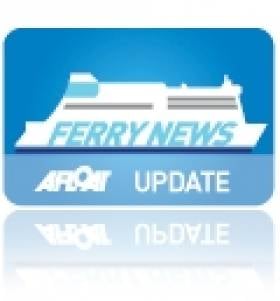Displaying items by tag: Cap Finistere
Brittany Ferries Re-Open Bilbao Route
The Cap Finistere has a 790 passenger / 500 vehicle capacity and the vessel will operate two round trips weekly with each crossing taking 24 hours. Interestingly an additional en-route call to Roscoff is scheduled on Sunday sailings bound for Bilbao which will take 33-hours. This is to facilitate a crew change, as the Cap Finistere does not operate on any of the company routes from France.
In 2009 the P&O service carried 180,000 passengers and 193,000 in 2008 but closed due to "unsustainable losses". There were 800 redundancies but some 150 staff jobs were secured through transfer. Click here for a previous posting. The company were in direct competition with Brittany Ferries existing two routes between Plymouth and Poole to Santander.
The Bilbao route brings the Brittany Ferries operations to five sailings weekly between the UK to Spain, two from Portsmouth to Santander and a single round-trip to Plymouth.
The Pride of Bilbao was sold late last year by ICG to the Baltic Sea based St. Peter Line at a profit of €9.4m. The vessel underwent refurbishment and was renamed Princess Anastasia and next month starts a new St. Petersburg-Stockholm service, with Russian bound sailings calling en route to
the Estonian capital of Tallinn. Click here for more details.
Pride of Bilbao's return to the Baltic is nearly full-circle as the 2,553 passenger / 600 vehicles vessel, built in 1986 as Olympia for Viking Line's also operated out of Stockholm to Helsinki, and at the time was one of the largest overnight passenger capacity ferries in the world.





























































